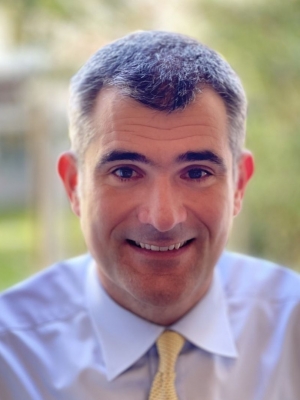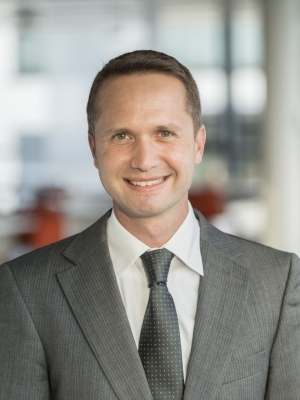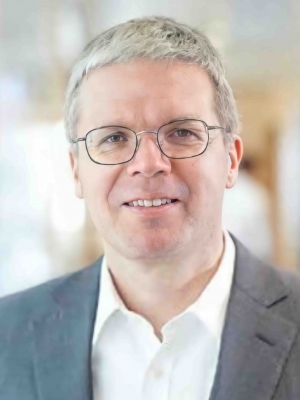Developed in partnership with future employers.
Prepare yourself to be the business leader of tomorrow. From day one, you will be immersed in a simulated working environment where your learning journey is at the center. You will learn on campus, online, peer-to-peer, in teams, through personal coaching and mentoring, and finally on the job, all in one internationally-focused Master's degree program. Work side-by-side with executives from top global organizations and obtain certificates for specific skills in your concentration.
Structure
Franklin's MSIM leverages the best practices of in-class, online and on-site learning. Courses taught on the Franklin campus address contemporary managerial topics, are taught seminar-style in small groups, involve diverse international students from a variety of backgrounds and are delivered by experts with years of managerial experience. The online courses cover the latest, most relevant and most-applicable topics students can study and are designed and taught by industry leaders who work at organizations such as Google, the United Nations, Amazon and many others. The practical experiences give students the opportunity to work and network in an international organization. Working on actual projects, students get the knowledge, experience and credentials to launch into the next phase of their careers.
The Master is made of 3 main blocks:
-
Leadership and Management (Fall – September to December, Lugano)
During this term students will learn leadership and management in a participative and collaborative setting. The pace of this term is intense, and the experience provides the foundation for transformation. At the end of the term students will begin to be empowered as change agents. Faculty and instructors, many who are pioneers in their spheres of competence, share their expertise with students.
-
Knowledge and Skills for Employment (Spring – January to May, Lugano)
In the spring term, students will deepen their expertise in collaboration, project management and self-management. This term is built in collaboration with partner institutions and will allow students to develop the skills necessary to be competitive in their fields. Students will join live conferences and network with experts and professionals from international organizations.
-
Experiential In-Organization Learning (Summer – May to July, Geneva)
Students will join project teams at partner institutions and gain hands-on experience in their chosen field of emphasis. Students will be challenged and trained to work on real ongoing projects sponsored by international organizations and businesses.
|
Fall (Aug–Dec) Engage in 21st century leadership and management: a total immersion |
Spring (Jan–May) Build your learning portfolio with your tutor: in-depth knowledge and skills for employment |
Summer (May–Jul) Apply what you learned through consulting projects: a practical experience |
| Seminars, in-class learning, and executive workshops | Hybrid learning platforms (online and in-class), company visits, conferences, career workshops, guest lectures and seminars |
Sustainable Food Systems: Food systems project internship choosing from Food Tech startups, global corporations or NGOs. |
| Professional and Personal Coaching | ||
The Program
Created in partnership with the Future Food Institute [FFI] and the Food and Agriculture Organization of the United Nations [FAO], this MSc in International Management in Leadership for Sustainable Food Systems is designed to provide both a practical and theoretical preparation for change-makers, climate shapers and future leaders in the food innovation ecosystem. Through a rigorous curriculum and multicultural experience, the program strives towards preparing leaders for today’s global food environment.
The program is designed as an applied-learning pathway, including live classroom seminars, online course work and a hands-on, dynamic, experiential learning opportunity. It offers a series of masterclasses, a four-week dynamic bootcamp, open conversations, company visits, hackathons and other valuable experiences to provide cutting-edge practice. Students will gain the knowledge necessary for collaborating with multiple stakeholders to ensure sustainable food systems. Main touchpoints are research, trends, patterns and innovation in sustainability, ecosystems and food value chain complexity, while developing entrepreneurial mindset and leveraging opportunities for networking and career development. Experience turning systemic challenges into functional solutions, through practical projects and strategies, applicable to any corporation, global NGO or innovative startup.
Students will actively be engaged in the individual design and execution of the program, through Franklin’s tailor-made and customizable study-path, developing professional skills and international relationships along the way to support future impact and drive the transition toward a greener professional ecosystem and society.
Additionally, students will earn a Certificate Leadership for Sustainable Food Systems from Future Food Institute in conjunction with the Franklin Master of Science degree
Practical Experience
Future Food Institute and Sustainable Food Systems
Students will work with coaches and professors on a self-directed program of study, combining online study with practical field experience in Food Tech startups, global corporations or NGOs, focusing on production and consumption patterns, value chains and specific food system challenges. The learning portfolio includes selected sessions and classes, experiential learning through travel and project-based work, consisting in five modules touching topics such as leadership, ecosystems, and food complexity, with a collection of case studies and success stories. A one-month dynamic boot camp, field trips and company visit are also part of the agenda, enabling students to meet international experts, participate in self-paced masterclasses and mentoring sessions. Further to the standard program curriculum, the Future Food Institute [FFI] offers a selection of international Field Schools during the Summer semester to cultivate firsthand experience on extraordinary best practices, startups, and innovative projects from the global sustainable development system.
Employability
The program is a valuable opportunity to nurture and grow leadership talent and practical experience in the food economy innovation and development worldwide. Students will gain new perspectives and develop systemic thinking to deal with the complexity and unintended consequences of our global food supply chain. Future professional career contexts could range from public and corporate organizations in the food industry to green entrepreneurs and change makers.
Tuition and Scholarships
Tuition for the Master of Science in International Management is paid in Swiss Francs.
| 2021 - 2022 Tuition | CHF 25,000 |
See additional estimates for direct and indirect expenses for Master's students
A merit scholarship is available for qualifying students admitted to the Master of Science in International Management program. See Responsible Leadership Scholarship for details.
These skilled learning facilitators are experts and innovators that offer you multiple lenses through which to view and solve problems. Each individual on this list will be an important influence as you construct your path toward new ideas and career opportunities.
Branko Sain
Dean of Innovation and Impact, Franklin University Switzerland
Carlo Giardinetti
Dean of Executive Education and Global Outreach, Franklin University Switzerland
Faculty
Curriculum
This participative and collaborative curriculum is designed to provide students with an intensive path of study that gives you a strong background in leadership, creates situations that build experience in collaboration and project management, and launches the next phase of your career through internships working on real ongoing projects. Each of the courses and workshops in the program is a facet of a complete perspective that will help you to be an effective agent of innovation.
Learning Platform
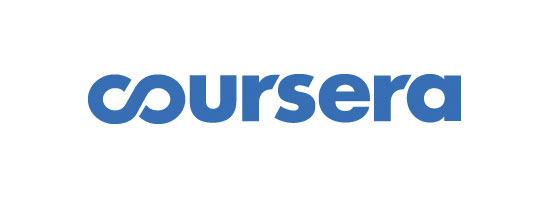 In addition to Curriculum courses, Coursera learning platform gives you access to unlimited online certificate education for 12 months to upgrade your skills and improve your hireability.
In addition to Curriculum courses, Coursera learning platform gives you access to unlimited online certificate education for 12 months to upgrade your skills and improve your hireability.
LIFESTYLE
Franklin University Switzerland was founded on the idea that where you learn is as important as what you learn. It makes a difference to study paths to global solutions in a variety of cultural crossroads such as Franklin campus, where students come from nearly 50 different countries; Switzerland, where multiple languages and cultures find common ground; or the United Nations, where countries work together to resolve issues that go beyond national borders. Take advantage of these learning environments that are not only a learning opportunity in themselves, but that are also perfectly positioned for expanding your perspectives through European travel.
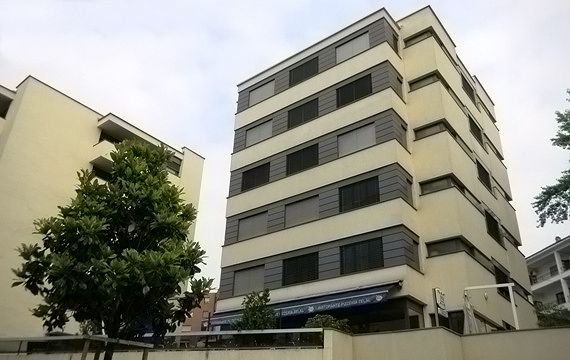 Living Accommodations
Living Accommodations
Graduate students at Franklin are provided quiet, off-campus, apartment-style housing on their own floor at the Alba Residence. With panoramic views of Monte Bre and the historic center of Lugano, this building is a 10-minute walk from campus, and directly across the street from the Lugano Central Train Station. It is close to the main shopping district, and many cultural attractions.
Life in Lugano, Switzerland
Lugano provides an interesting, safe, and diverse setting for graduate students to learn and thrive. Italian in culture, but influenced by Swiss efficiency and quality, Lugano is an important Swiss city for finance, tourism and consumer goods. Switzerland is rated one of the highest in terms of quality of life thanks to its stable political scene, sustainable social system, and strong economy. It is often rated as one of the most innovative nations in the world. With one of the highest GDP per capita, Switzerland also has one of the lowest crime levels anywhere. Moreover the quality of food, as well as goods and services are very high quality, and Switzerland offers a wide range of opportunities for free time, leisure, culture and sport.
Partnership

The Emphasis in Leadership for Sustainable Food Systems was created in collaboration with the Future Food Institute. The Future Food Institute is an Italian-based non-profit with global horizons that aims to build a more equitable world through enlightening a world-class breed of innovators, boosting entrepreneurial potential and improving agri-food expertise and tradition. MSIM students can gain practical experience at one of their international field school opportunities.





